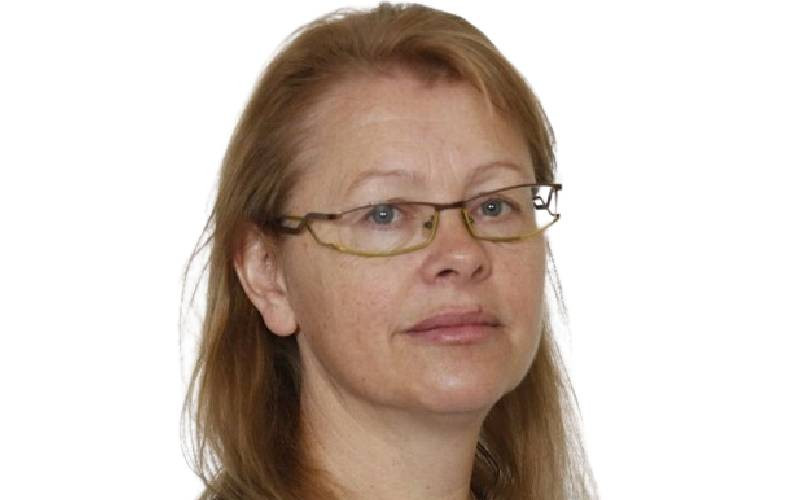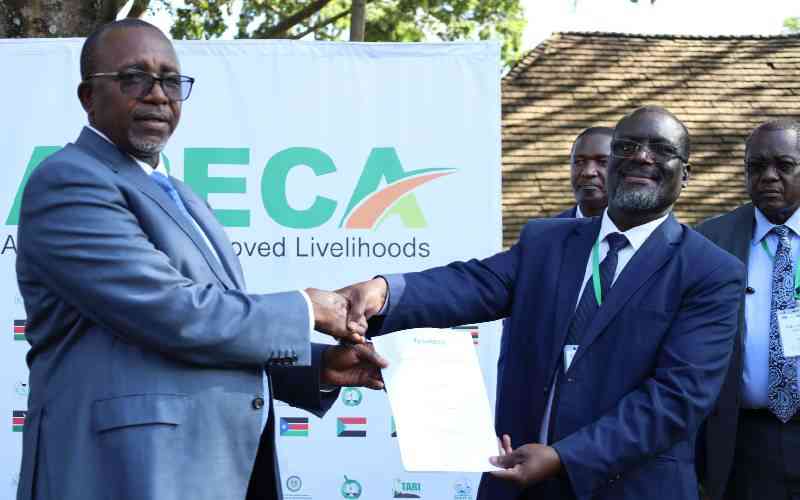By Fredrick Obura
Research institutions, Universities and consumers are biggest losers in a new directive by the Government to ban trade and importation of genetically modified foods (GMOs), experts say.
Moi, Kenyatta, Jomo Kenyatta University of Agriculture and Technology (JKUAT) and Nairobi universities have been laying foundation for biotechnology studies. For instance, Kenyatta University had review existing biochemistry and biotechnology programs to take advantage of recent legislation passed by the Government in support of GMOs.
The reviewed programmes at Kenyatta take effect in the first semester of 2012/2013 academic year. In an announcement that might slow such development, Public Health minister Beth Mugo last month ordered for the ban of GMO foods in Kenya.
Citing safety issues, she called on all government regulators and agencies involved in overseeing the importation of food products to with immediate effect comply with the directive and beef up security at the port and along border points to prevent any entry of the GMOs into the local market.
Dr Silas Obukosia, Director Regulatory Affairs at Africa Harvest said the move was misinformed and likely to deny Kenya the opportunity to increase food production through modern technology.
Friendly laws
He said efforts by universities to enhance their biotechnology programs and building capacity in the area might go into waste if the decision by the minister is not annulled.
“Mugo’s ban on the importation and trade of GMOs due lack of evidence regarding their safety is puzzling,” he said. “This is because major investments such as the approval of the National Biotechnology Development Policy by the Cabinet in 2006, and the enactment of the Biosafety Act in 2009, and gazettment of three different biosafety regulations in 2011 have been made to address the issue of safety,” he said. “A lot of money has been pumped in by universities in creating masters and PhD programmes in biotechnology which need to be supported by friendly laws.”
A degree course in biotechnology and biosafety was launched in Moi University in 2009. JKUAT has developed a Master of Science in Biotechnology. Kenyatta runs both undergraduate and postgraduate courses in biotechnology. Kenya is among the few countries in Africa leading in the fusion of technology in food production, this is with an aim of creating disease and drought resistant varieties.
Currently crops such as maize, cotton, cassava, sweet potato, and sorghum are in confined field trials. Kenya plans to join the league of African countries that have commercialised Bt cotton in 2012. Kenya Agricultural Research Institute (KARI) scientists had completed field trials of Bt cotton at Mwea in the Eastern Province of Kenya.
 The Standard Group Plc is a
multi-media organization with investments in media platforms spanning newspaper
print operations, television, radio broadcasting, digital and online services. The
Standard Group is recognized as a leading multi-media house in Kenya with a key
influence in matters of national and international interest.
The Standard Group Plc is a
multi-media organization with investments in media platforms spanning newspaper
print operations, television, radio broadcasting, digital and online services. The
Standard Group is recognized as a leading multi-media house in Kenya with a key
influence in matters of national and international interest.
 The Standard Group Plc is a
multi-media organization with investments in media platforms spanning newspaper
print operations, television, radio broadcasting, digital and online services. The
Standard Group is recognized as a leading multi-media house in Kenya with a key
influence in matters of national and international interest.
The Standard Group Plc is a
multi-media organization with investments in media platforms spanning newspaper
print operations, television, radio broadcasting, digital and online services. The
Standard Group is recognized as a leading multi-media house in Kenya with a key
influence in matters of national and international interest.








